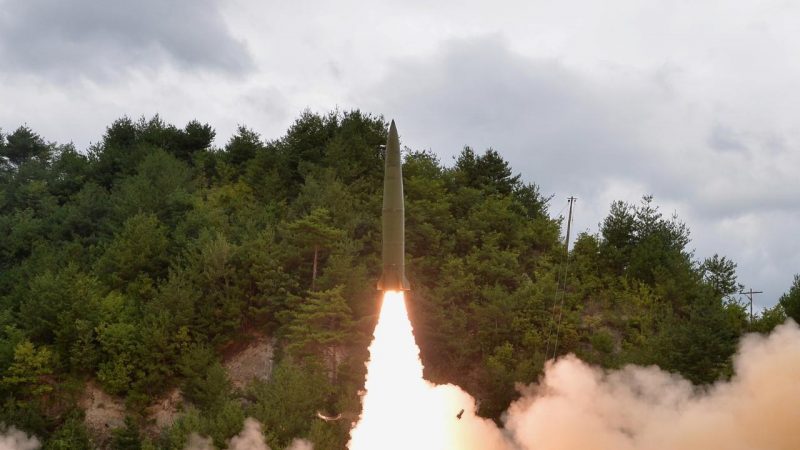- The UN gives North Korea heat as the nation launches two ballistic missiles into the Korean East peninsula
- South Korea tests a submarine missile on the same day with support from the US and Japan
- This is the second North Korean weapons test this week after it fired missiles ahead of talks in Tokyo
- Meanwhile UK, US and Australian leaders confirm a deal to establish an Australian fleet of nuclear-fuelled submarines
The United Nations (UN) has criticised North Korea after the nation launched two ballistic missiles into the Korean East peninsula, the same day as South Korea tested a submarine missile with US and Japanese support.
On Tuesday, the Democratic People’s Republic of Korea (DPRK), or North Korea, tested a new long-range cruise missile which the UN interpreted as an indication of military advancements.
The DPRK has a record of testing weaponry at politically symbolic times. On the weekend tests were conducted one day ahead of the US, Japan and South Korea convening in Tokyo to discuss the denuclearisation of the Korean peninsular. Those discussions were met with silence by China and DPRK.
Japan and South Korea are allies of the US and concluded diplomacy was the most effective way of advancing communication with the DPRK.
“Our trilateral cooperation is essential for complete denuclearisation and permanent peace on the Korean Peninsula,” South Korea’s Special Representative for Korean Peninsula Peace and Security Affairs Noh Kyu-duk said.
Japan expressed contempt at the DPRK for ignoring UN sanctions and diplomatic communications from Japan’s allies.
“The launch of a possible ballistic missile threatens the peace and security of our country and the region, and is outrageous,” Prime Minister Yoshihide Suga said before the most recent launch.
AUKUS goes nuclear
On Wednesday, UK, US and Australian leaders confirmed a deal to establish an Australian fleet of nuclear-fuelled submarines in a new security partnership named AUKUS .
“Our defence forces are all working together to deliver a safer and more secure region that ultimately benefits all,” Australian Prime Minister Scott Morrison said.
The agreement has consolidated alliances against the increased threats in the Indo-Pacific region.
“We need to be able to address both the current strategic environment in the region, and how it may evolve because the future of each of our nations and indeed the world depends on a free and open Indo-Pacific enduring and flourishing in the decades ahead,” US President Jo Biden said.

